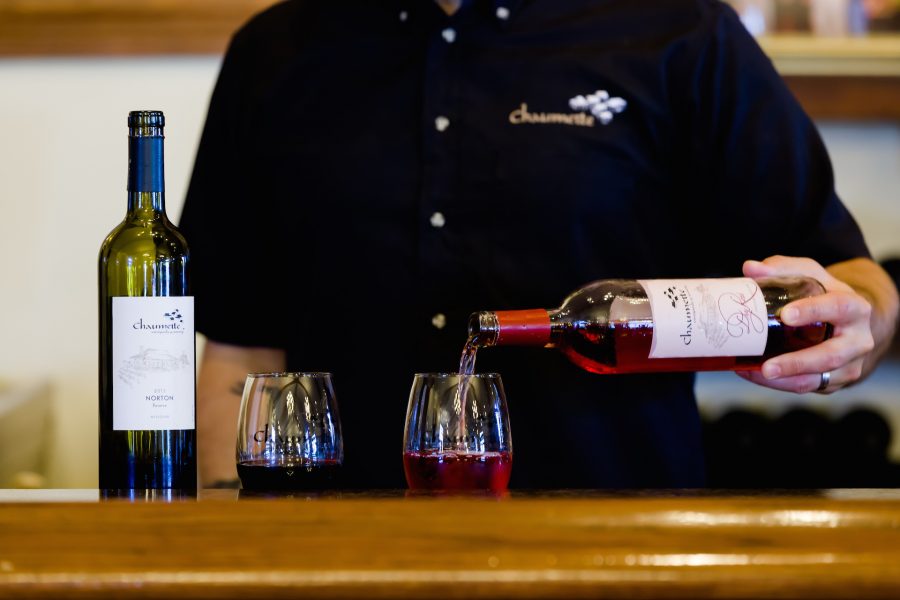Science Says Learning to Identify Wine Makes You Smarter

If you’re a connoisseur of wine and hold a special place in your heart for a good Chardonel, then we don’t need to convince you to indulge in wine tastings. But what if we told you that this pastime can actually bolster your brainpower? Studies show that wine tasting isn’t just good for your brain – it actually makes it work harder than a tough math problem or listening to classical music. Now, if you were to work on some calculus while sampling wine and listening to a Tchaikovsky opera, well… you may come close to reaching Einstein status.
The Science Behind It
Why does tasting wine engage more of the brain than any other activity? Simply this: it activates several of your senses (sight, taste, and smell) and challenges your mental cognition. Wine tasting also gets the jaw, throat, diaphragm, taste buds, and olfactory receptors involved as they all team up to relay information to the brain. Your brain then starts working overtime by tapping into your memory, assigning value, and creating emotion and pleasure. This type of deep engagement in which several of your body’s systems work together with the brain to solve a problem is healthy and promotes mental sharpness.
Gordon Shepherd, a Yale neuroscientist, has the proof in his recently published book, Neuroenology: How the Brain Creates the Taste of Wine. In it, he delves into the entire process of wine tasting in extreme detail, from mouthfeel and how our mouths manipulate wine to the way our brains process and store information it receives. He purports that wine tasting engages us more completely than any other activity, arguing that when we drink wine, our minds are truly responsible for creating the flavors that we perceive.
The Benefits of Wine Tasting Don’t Stop There
Although we’ve discussed the most impressive health benefits that wine has to offer in this blog, recent research has given us even more reasons to love and drink wine. A 2018 study found that drinking low levels of wine can lower inflammation in the brain and clear away toxins linked to serious diseases in the brain. Research from John Hopkins Medicine revealed that the resveratrol present in red wine also helps protect the brain from damage after a stroke.
Here’s How You Can Reap All the Benefits
Remember, these positive findings don’t mean you should start guzzling wine. On the contrary, you need to slow down and truly savor what’s in your glass. Doing so will actively engage your brain and help you grow into a true sommelier.
Even if you’re a novice, you can begin sharpening your skills now. First, pour yourself about 3 ounces of wine in a bowl-shaped wine glass – this amount will be just right to help activate your smell and taste receptors. Gently swirl the wine, close your eyes, and sniff slowly to help you pinpoint the aroma. Perhaps it’s floral, fruity, nutty, or has just a hint of spice. Then take a slow, deliberate sip. Note the mouthfeel and inherent traits of acidity, sweetness, and body. You can even try voicing or writing down the flavors you encounter to create a flavor profile and sharpen your observation skills. Be expressive in your descriptions – was the wine vibrant, bountiful, magnanimous, or expressive? Use your adjectives to describe what you experienced!
If you’re looking for somewhere to start your wine tasting adventures, choose Chaumette Vineyards & Winery. We are proud to provide a diverse Missouri wine portfolio, which reflects the finest examples that Midwest wine has to offer. Order your wine today, join our Wine Club, or savor a glass with us at the Grapevine Grill!


+ There are no comments
Add yours